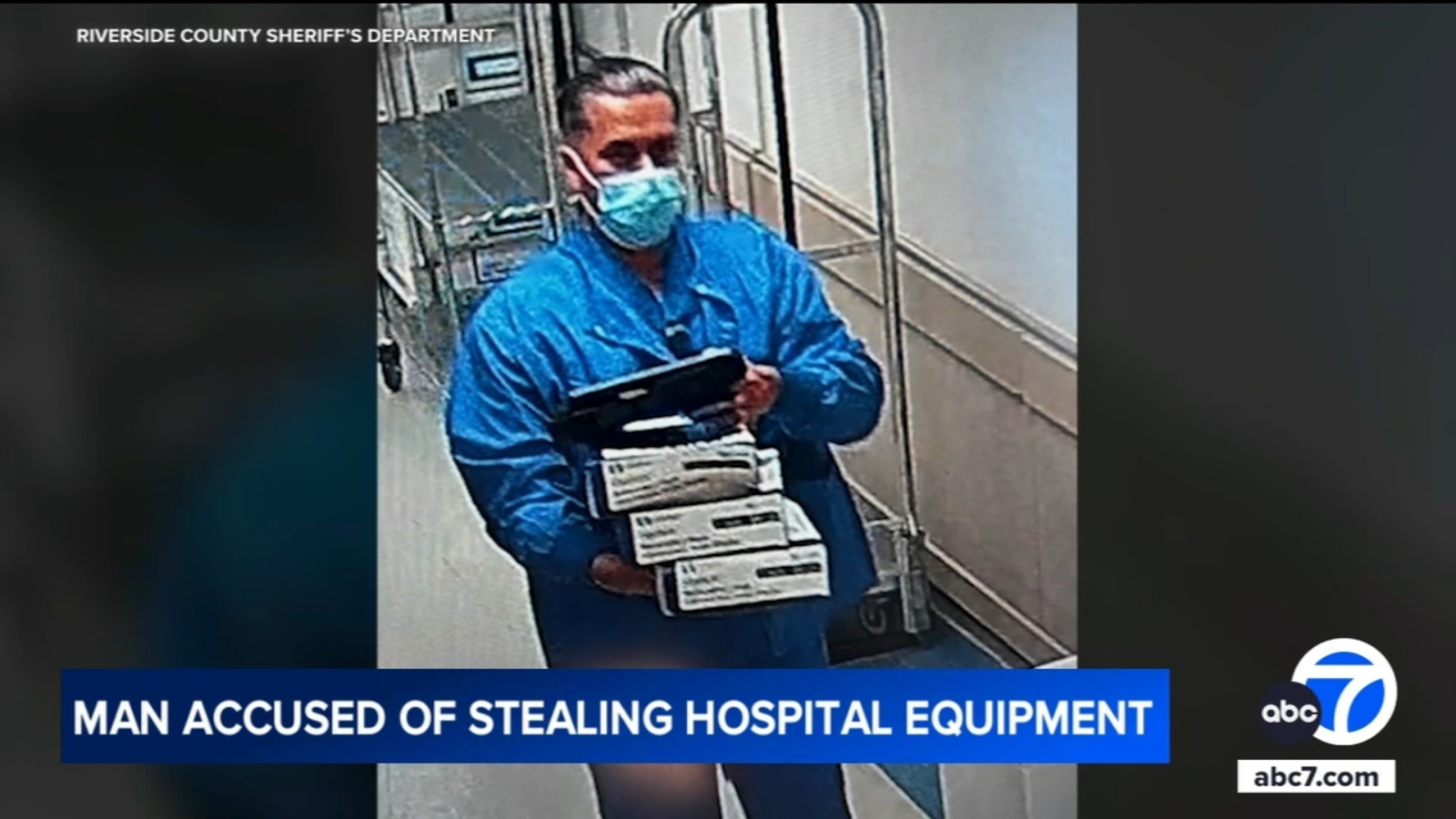Could a $100,000 Theft of Skin Grafts and Medical Supplies Shake Rancho Mirage Hospital?

Understanding the Alarming Case of Medical Theft in Rancho Mirage
The recent case involving Jason Brauner, a 47-year-old man accused of stealing over $100,000 worth of skin grafts and surgical equipment from a hospital in Rancho Mirage, has raised serious concerns about security protocols in healthcare facilities. This incident highlights not only the audacity of the crime but also the vulnerabilities present in the medical system, which is designed to prioritize patient safety and care. With the rising incidents of theft and fraud in healthcare, it becomes imperative to delve deeper into how such crimes occur and their broader implications.
Details of the Incident
According to the Riverside County Sheriff's Department, Brauner gained access to restricted areas of the hospital by disguising himself as hospital staff. Wearing blue scrubs and a surgical mask, he blended in seamlessly with the personnel, allowing him to evade detection during multiple thefts that occurred over a span of several weeks. The thefts reportedly took place in June and July 2025, involving the pilfering of medical supplies that are crucial for various surgical procedures.
The Arrest and Investigation
Law enforcement officials made significant strides in the investigation when they located Brauner's vehicle while he was en route to San Diego. Deputies stopped him in Del Mar and detained him without incident. Following his arrest, authorities conducted thorough searches of both his vehicle and his home in San Jacinto, where they recovered not only the stolen medical equipment but also apparel that indicated his impersonation of hospital staff.
The Broader Implications of Medical Theft
This case is not isolated; it reflects a growing trend of theft within healthcare environments. Medical supplies, including skin grafts, are not only costly but also vital for patient care. The implications of such thefts can be far-reaching, affecting patient safety, increasing costs for healthcare facilities, and straining resources that are already limited in many hospitals.
Trends in Healthcare Theft
Healthcare theft can take many forms, including:
- **Theft of Medical Equipment**: This includes surgical tools, diagnostic machines, and even pharmaceuticals.
- **Identity Theft**: Criminals may impersonate healthcare professionals to gain access to sensitive areas or patient information.
- **Insurance Fraud**: Falsifying claims to obtain funds from insurance companies.
Enhancing Security Measures in Healthcare Facilities
In light of incidents like Brauner's theft, hospitals and healthcare facilities must enhance their security measures to protect against both internal and external threats. Here are some strategies that can be implemented:
- **Access Control Systems**: Implementing key card systems that restrict access to sensitive areas can significantly reduce unauthorized entries.
- **Staff Training**: Regular training sessions on security awareness can help staff recognize suspicious behaviors and report them promptly.
- **Surveillance Cameras**: Installing cameras in strategic locations can deter potential thieves and provide evidence in case of theft.
The Impact on Patients and Healthcare Providers
The ramifications of medical theft extend beyond financial loss. Patients may face delays in receiving necessary medical procedures if supplies are not available. Moreover, hospitals may need to increase their budgets to replace stolen items, which can lead to higher healthcare costs for patients in the long run.
Patient Safety Concerns
When essential medical supplies are stolen, the immediate concern is patient safety. With the ongoing demand for surgical procedures, any disruption in the availability of skin grafts or surgical equipment can lead to postponed surgeries. This not only affects the health outcomes for patients but can also result in increased stress and anxiety for those awaiting treatment.
Legal Consequences of Medical Theft
Jason Brauner faces multiple charges, including grand theft, commercial burglary, and possession of stolen property. The legal ramifications for such crimes can be severe, often resulting in lengthy prison sentences and hefty fines. Moreover, a criminal record can have long-lasting effects on one’s future employment opportunities and reputation.
Understanding the Legal Framework
The legal framework governing theft and burglary varies by jurisdiction, but generally, it includes:
- **Felony Charges**: These are serious offenses that can result in significant prison time, especially when large sums of money are involved.
- **Restitution**: Offenders may be required to pay back the value of stolen items, adding a financial burden on top of legal penalties.
- **Criminal Record**: A conviction can lead to a permanent mark on one’s record, impacting future employment and housing opportunities.
Conclusion: Addressing the Issue of Medical Theft
The theft of medical supplies, as demonstrated by the case of Jason Brauner, poses a significant challenge to healthcare facilities. It emphasizes the urgent need for robust security measures and ongoing vigilance among hospital staff and law enforcement. The health and safety of patients must remain the top priority, and addressing the vulnerabilities in the system is essential for ensuring that all patients receive the care they need without disruption.
As we move forward, it is crucial for healthcare facilities to adopt a proactive approach to security and theft prevention. This involves not only implementing new technologies but also fostering a culture of awareness and accountability among all staff members.
FAQs
What security measures can hospitals implement to prevent theft?
Hospitals can enhance security by using access control systems, training staff on security awareness, and installing surveillance cameras throughout the facility.
What are the legal consequences of stealing medical supplies?
Legal consequences can include felony charges, restitution for stolen items, and the long-term impact of having a criminal record.
How does medical theft impact patient care?
Medical theft can lead to delays in surgical procedures, increased costs for healthcare providers, and ultimately affect patient outcomes negatively.
As healthcare continues to evolve, the focus on securing medical supplies and equipment must remain a priority. How can we, as a society, ensure that healthcare facilities are better protected against such threats moving forward?
#HealthcareSecurity #MedicalTheft #PatientSafety
Published: 2025-08-15 05:50:00 | Category: Trump GNEWS Search



